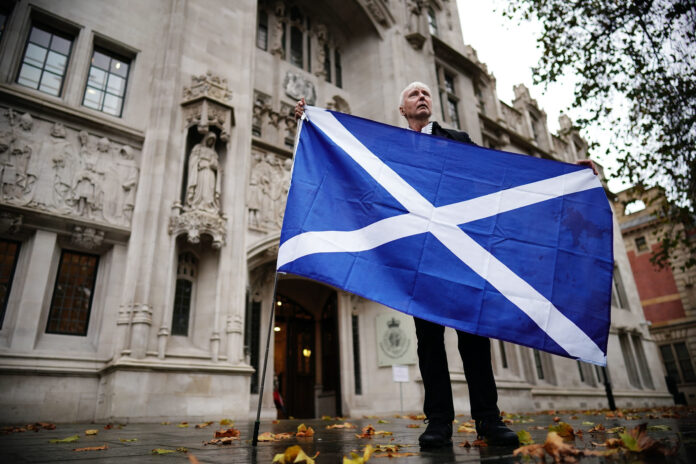The United Kingdom’s top court ruled on Wednesday that the Scottish government cannot hold a second referendum on independence without approval from the British parliament, dealing a hammer blow to nationalists’ hopes of holding a vote next year.
In 2014, Scots rejected ending the more-than 300-year-old union with England by 55 to 45 per cent, but independence campaigners have argued the vote two years later for Britain to leave the European Union, which the majority of Scottish voters opposed, has materially changed the circumstances.
Scottish First Minister Nicola Sturgeon, leader of the pro-independence Scottish National Party (SNP), announced earlier this year that she intended to hold an advisory independence vote on Oct. 19, 2023, but that it had to be lawful and internationally recognized.
However, the British government in London has said it would not grant permission for another plebiscite, saying it should be a once-in-a-generation event. Polls suggest voters remain evenly split over whether or not they support independence and a vote would be too close to call.
The Scottish government’s most senior law officer had asked the U.K. Supreme Court whether the Scottish government could pass legislation paving the way for an advisory second referendum without the approval of the U.K. parliament.
The unanimous verdict of five judges on the court was that it could not.
Trending Now
Trending Now
“The Scottish parliament does not have the power to legislate for a referendum on Scottish independence,” said Robert Reed, the president of the U.K. Supreme Court.
0:38
What about the Scottish independence vote?
Under the 1998 Scotland Act, which created the Scottish parliament and devolved some powers from Westminster, all matters relating to the Union of the Kingdoms of Scotland and England are reserved to the UK parliament. The court concluded any referendum, even advisory, would be a reserved matter.
While the court’s decision will disappoint nationalists, it will be far from the end of the question.
The SNP, which has dominated Scottish politics for more than a decade, winning the overwhelming majority of Scottish seats in the 2019 U.K. election, has argued that the refusal of the British government to allow another vote means the views of Scots are being ignored.
Sturgeon had already promised that defeat in the Supreme Court would mean her party would fight the next U.K.-wide election, due to be held in 2024, solely on a platform of whether Scotland should be independent, making it a “de facto” referendum.
“A law that doesn’t allow Scotland to choose our own future without Westminster consent exposes as myth any notion of the U.K. as a voluntary partnership and makes case for Indy (independence),” Sturgeon said on Twitter.
“Today’s ruling blocks one route to Scotland’s voice being heard on independence – but in a democracy our voice cannot and will not be silenced,” she wrote.



